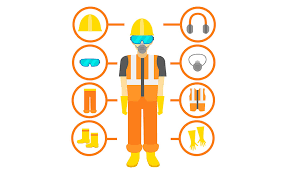Understanding Used Car Price in Dubai: What Affects the Cost?
- February 23, 2026
- Business
You found a car that looks perfect. The photos are clean, the price seems fair, and the seller sounds genuine.

While PPE has always been vital for certain industries and roles, the coronavirus pandemic showed that a lack of proper PPE can quickly threaten the health of a workforce and bring business operations to a halt. As the UK continues to deal with the impacts of the pandemic and faces new health and safety challenges in the years ahead, all employers must provide staff with adequate PPE and have robust procedures in place for sourcing and managing equipment.
The most fundamental purpose of PPE is to protect employees from workplace hazards that can cause injury, illness and even death. Common PPE includes helmets, gloves, eye protection, high-visibility clothing, safety footwear and respiratory equipment. For example, construction workers rely on hard hats, steel-toe boots and harnesses to avoid head injuries, crushed feet, and falls from height. Healthcare staff need disposable gloves, aprons and face masks to shield themselves from infectious diseases. Proper use of PPE significantly lowers the probability of accidents and work-related health problems, keeping employees safe on the job.
During disease outbreaks and epidemics, the role of PPE becomes even more critical. As COVID-19 spread across the UK in early 2020, there was a dire shortage of face masks and other protective equipment for healthcare workers, putting them at tremendous risk of infection. Once adequate supplies were secured for medical staff, it became clear that other workplaces also needed access to masks, sanitiser and Perspex screens to prevent transmission between employees and customers. Providing sufficient levels of appropriate PPE was key to getting businesses up and running again while keeping workers and the public safe.
As well as protecting the health of individual staff members, having enough suitable PPE enables organisations to maintain productivity and continue essential operations during challenging times. When members of the workforce start getting sick or injured, it places pressure on remaining employees, raises costs associated with absence and medical care, and can severely disrupt normal business activities.
To maximise the benefits of PPE for protecting workers and avoiding business disruption, employers must have clear policies and procedures in place for assessing risks, selecting and providing equipment, training employees, and monitoring compliance on site. Carrying out thorough risk assessments for all job roles helps identify what types of hazards are present and which PPE is needed to control them. It is vital to select PPE that is fully certified to the right standards for the risks involved, consulting workers to ensure it fits comfortably and allows full mobility.
The COVID-19 pandemic brought into sharp focus the critical importance of PPE in protecting workforces from harm and enabling organisations to maintain safe operations through challenging circumstances. As the UK looks to rebuild and grow its economy in the years ahead, businesses across all sectors must appreciate the fundamental value of providing staff with sufficient PPE and effectively managing workplace safety risks.